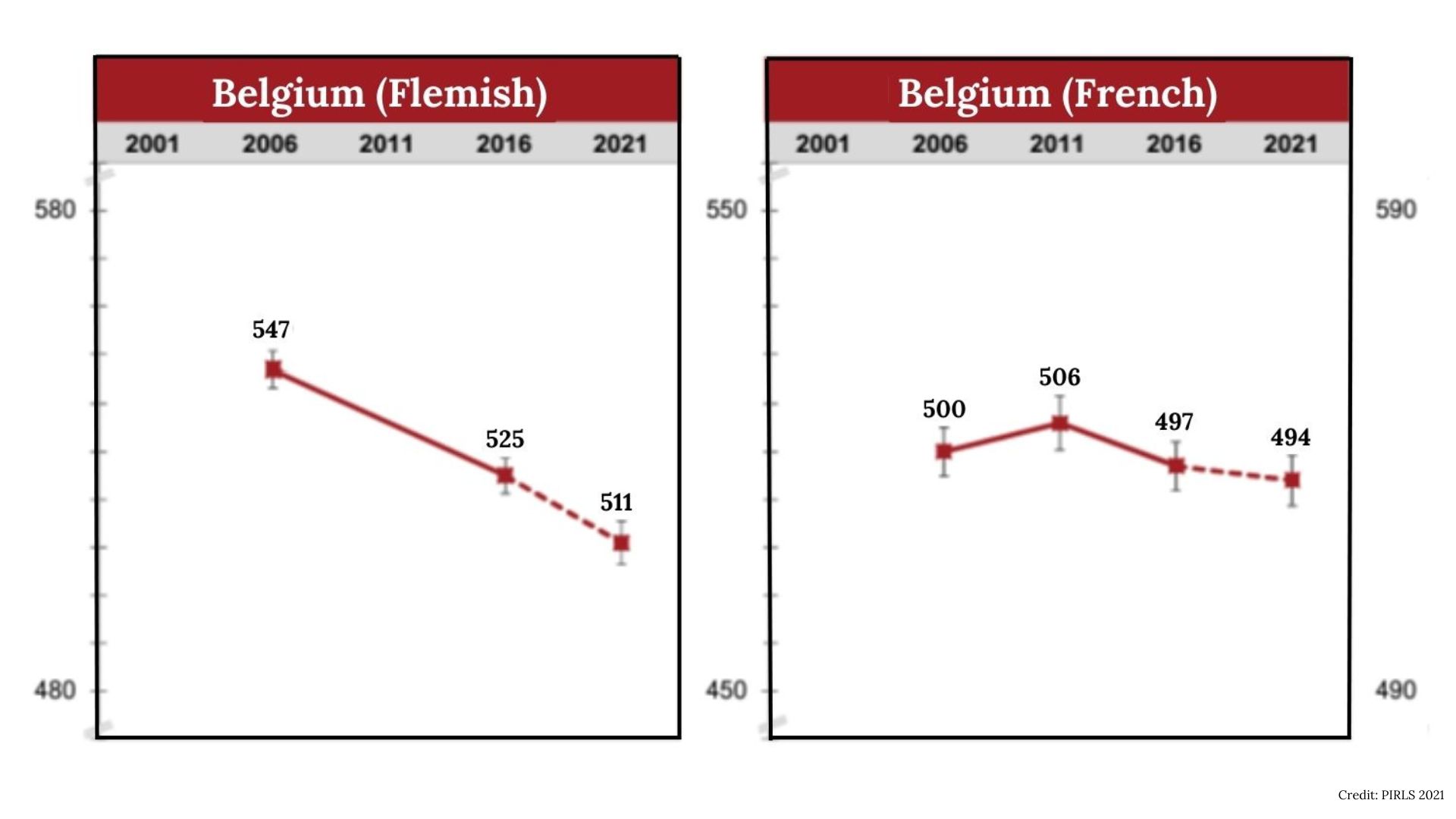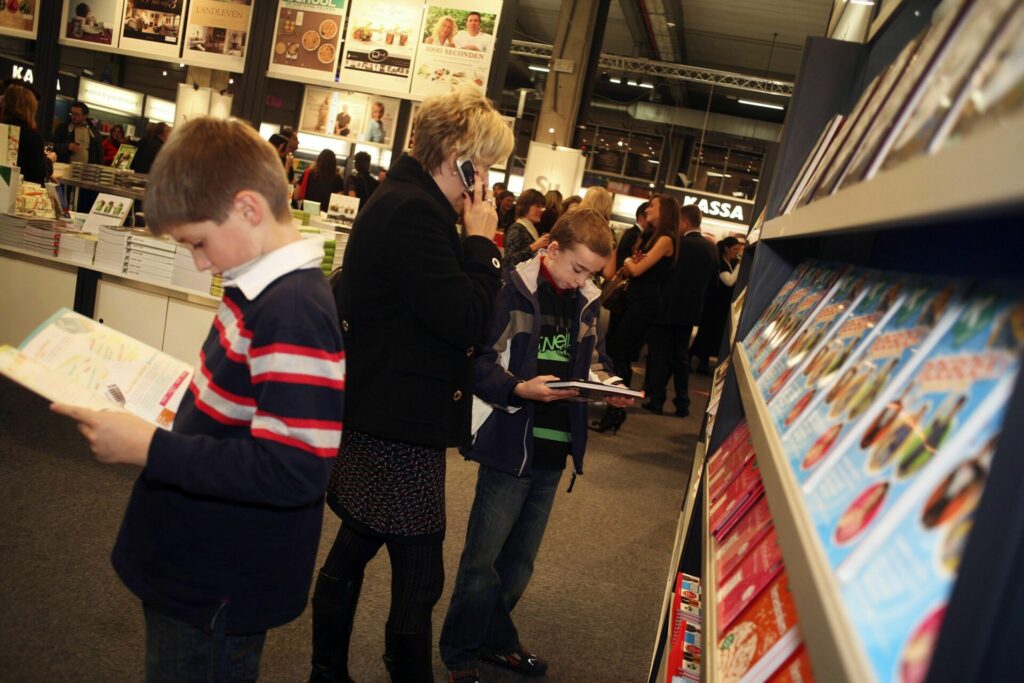Reading comprehension in Belgian schools has deteriorated, according to the Progress in International Reading Literacy Study (PIRLS).
The international study, which is conducted every 5 years, stated that Wallonia had seen a slight decrease but Flanders had experienced a dramatic decline.
The PIRLS evaluates how fourth-grade children (ages 9-10) perform in reading comprehension in dozens of countries. In Belgium, Flanders and Wallonia are evaluated separately and more than 6,700 Flemish pupils and 4,271 French-speaking pupils participated in the spring 2021 study.
As has been the case in previous evaluations, the level of reading comprehension is drastically dropping, most notably in Flanders, although the Flemish region still continues to perform better than Wallonia. Flanders achieved an average score of 511 – 36 points lower than the first study Belgium participated in 15 years ago. Wallonia on the other hand scored an average of 497 points, dropping 6 points in 15 years.

Changes in Belgian pupils' reading comprehension over 15 years.
Whilst Wallonia's decrease is significantly less concerning than that of Flanders, the figures are "bittersweet" reports Le Soir, as the Wallonia-Brussels Federation has "stagnated at the bottom of the international rankings".
"Although this slowing downward trend may seem insignificant, it could be a sign that the fall that began between 2011 and 2016 is now under control, despite the impact of the pandemic," Patricia Schillings, researcher and lecturer at the Faculty of Psychology and Educational Sciences stated.
The figures for Flanders, however, received a myriad of reactions.
Parents are also responsible
"This confirms that the situation is serious," said Education Minister Ben Weyts (N-VA). "This is a trend that has been going on for more than 20 years. I hope that everyone now understands the importance of making a radical commitment to Dutch education. In school, but also outside the classroom."
Weyts continued, saying that the responsibility cannot be placed on the shoulders of schools alone and that parents need to also immerse their children in Dutch at home, "especially when you see that those who speak no or hardly any Dutch at home score worse, and that that group is only getting bigger."

Credit: Belga / Jorge Dirkx
The group leader of the Flemish centre-left party Vooruit, Hannelore Goeman, pointed the finger at the Flemish Government, and specifically at the N-VA. "After 10 years of this Flemish Government, the results keep getting worse." It is "simply a waste of talent" and children are paying "a huge price for the government's lack of ambition and investment in education", Goeman stated.
There are clear solutions, Goeman continued: there is a need for strong teachers, "ambitious, knowledge-rich primary education attainment targets" and more opportunities for children to study Dutch outside of the classroom through investment in a wide range of after-school activities.
N-VA Minister Annabel Tavernier called the results "concerning, but hardly surprising". The Minister applauded Weyts' strategy: "a strong commitment to Dutch education is the best approach...Especially considering that those who speak no or hardly any Dutch at home score worse", she said.
Related News
- Francophone liberals want to make Dutch and French compulsory from first grade
- Wallonia to finally make Dutch compulsory from primary 3
Tavernier defended the Flemish Government, declaring that a 20-year-long negative trend cannot be reversed in a few years but that it is "a matter of perseverance and persistence, both inside and outside the classroom."
The Education Association of Cities and Municipalities (OVSG) reacted to the study in a press release, stating that pupils should be supported and encouraged in their reading by their teachers, families and friends.
"Being able to read well is a basic skill. It is crucial that we reverse the trend of declining PIRLS results for reading," argued the General director of OVSG, Walentina Cools. Similar to Weyts' remarks, Cools stated that improving results lies in teamwork, "where responsibility should not be placed solely on the school".

